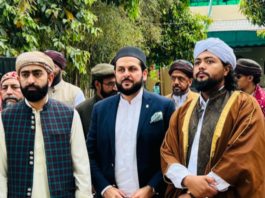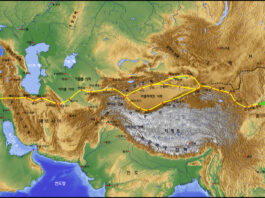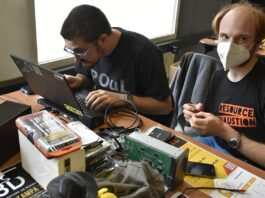Canada’s Minister of Immigration Marc Miller announced temporary immigration measures on December 21 to support family members of Canadians and permanent residents who live in Gaza and the West Bank.
“We are introducing special measures to support temporary residence for extended family members in Gaza who are related to Canadian citizens and permanent residents,” says the government of Canada website. “We will also prioritize the processing of all existing and new permanent residence applications for Palestinians within family-based streams.”
The assistance is two-fold. The first is for immigrants seeking to move to Canada on a temporary basis, the second is a work or study permit for those who were able to leave Gaza after October and those who feel unsafe to return.
Work or study is an essential part of the immigration process, especially in Canada where the birth rate is 1.48 births/woman in 2023 and declining annually. The decline means fewer people in the workforce as time goes on.
Being under the replacement rate of 2.1 means that a society will have difficulty recovering higher birth rates. 2.1 is the standard, making 1.48 a low figure comparatively. The last time Canada had a birth rate over 2.1 was in 1972, although replacement rates stay the same from generation to generation.
Canadian’s differ in their opinions regarding the announcement of heightened immigration.
One X (Twitter) user says, “Not only did Justin Trudeau’s government know about housing shortages & inflated housing prices, but they continued with their insane mass immigration that has exasperated the problem.”
Another user says, “Canada’s population isn’t growing through immigration, but rather by a set of non-permanent pathways, where workers typically have fewer rights than permanent residents.”
While temporary residents have fewer rights, people from conflict-torn areas, like Gaza, are prime material for the betterment of society. Interpeace, a United Nations organizations that works to end violence says, “Amid conflict and war, the people most affected by these circumstances have, time and time again, risen from misfortune, because of their capacities to organize and transform conflict into opportunities for peace.”
For context, the European Council gives further detail about the value of migrants, calling their integration this year a “a long-term investment in human capital:”
“Although the state has to invest money in integration, when the migrants arrive and a few years after, their macroeconomic impact becomes positive as they become permanent residents, are integrated in the labour market and pay taxes. Migrants and refugees boost the working-age population, arrive with skills, and therefore contribute to human capital development and to technological progress.”
IP Correspondent




